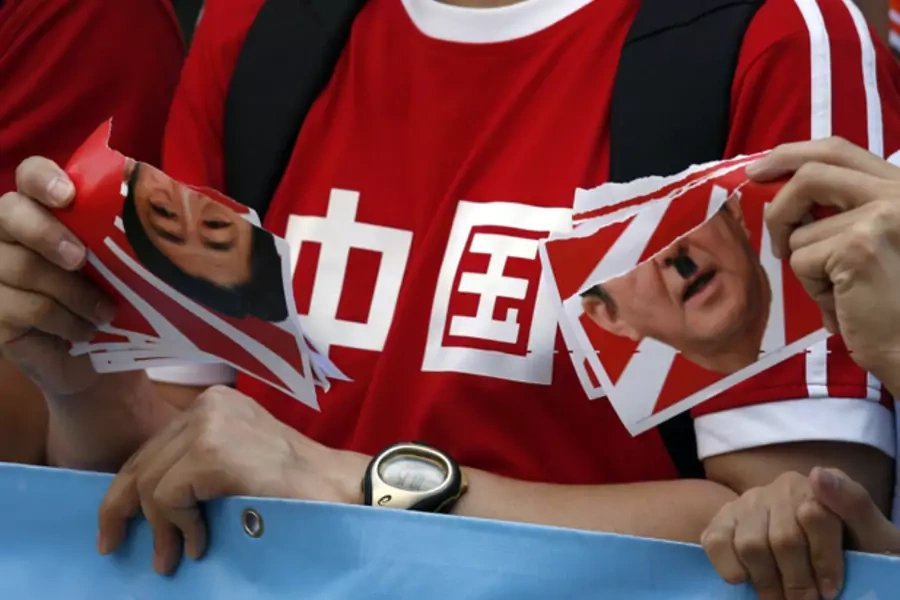A Chinese View: The Risks of Changing Japan’s Peace Constitution

This blog post is part of a series entitled Will the Japanese Change Their Constitution?, in which leading experts discuss the prospects for revising Japan’s postwar constitution. Gui Yongtao is associate professor at the School of International Studies and assistant president of the Institute of International and Strategic Studies at Peking University.
Japan’s constitution is facing unprecedented challenges in its seventy years of history as lawmakers supporting its revision have reached two thirds majority in both the Lower and the Upper Houses of the Diet, the threshold for proposing constitutional revision. Prime Minster Shinzo Abe has clearly stated that he would like to fulfil his longstanding goal of revising the constitution within his term. This could be the single most important legacy he wants to leave behind.
More on:
Since his first term as a prime minister, Abe has been pushing forward his political agenda of “breaking away from the postwar regime,” which essentially means to break away from Article Nine of the constitution domestically and depart from the postwar world system internationally. Although he later toned down the slogan by emphasizing that it is merely about reforms of domestic systems and has nothing to do with foreign policies, he has already changed Japan’s international security posture by reinterpreting the constitution and ramming through security bills through the Diet so as to allow Japan to exercise the right to collective self-defense. This move has effectively hollowed out Article Nine, the symbol of postwar Japan’s pacifism.
Not surprisingly, many scholars and most opposition parties in Japan have been arguing the unconstitutionality of the new security laws, and a majority of the public opposes the laws. Despite such strong criticism, Abe is still determined to push ahead with his agenda on constitutional revision. Underlying Abe’s persistence is his belief that the current constitution was imposed upon Japan by the Americans during their occupation of his country and that Japan must draw up a constitution on its own.
It is never a secret that Abe is a nationalist. In his first term from 2006 to 2007 his obsession with ideological campaign cost him popularity among the voters. He then learned a lesson and followed a pragmatic course after being reelected in 2012. Recognizing the difficulty to immediately revise the constitution, he shifted to the alternative of reinterpreting it. Yet he seems not content with the changes he has already made, and is pursuing the ultimate goal of drawing a new constitution for Japan.
The question is what kind of new constitution Abe aims to draw. The Liberal Democratic Party (LDP) announced a new draft constitution in 2012 [PDF], which not only prescribes that Japan shall have its National Defense Forces, a full army, but also prioritizes the so-called public order or public interests over individual rights. In the same year Abe campaigned under the slogan “take back Japan” in the election that brought the LDP back to power. In this context it is not difficult to understand that what Abe wants to “take back” is the state and the army that he believes has been taken away by the American occupation forces and Japan’s liberals in the postwar years. This is really alarming because it challenges the very liberal order that the Japanese people have embraced for the past seven decades.
Opinion polls indicate that a majority of Japanese people want to maintain the current constitution, worrying that revising it under the Abe administration could degenerate Japan’s pacifism. In a survey conducted by the Nihon Keizai Shimbun and TV Tokyo last May, views against constitutional revision reached 5o percent, the highest figure recorded since the survey started. In another poll conducted by the Mainichi Shimbun this month, 46 percent of the respondents think that Article Nine of the constitution should not be revised, while only 30 percent think it should be. Even within the LDP, many are not supportive of revising the constitution for the moment for fear that the move could further alienate a public that feels insecurity after the enforcement of the new laws that allow the exercise of the right to collective self-defense.
More on:
Against such backdrop the LDP is trying to refocus the debate by placing emphasis on adding a national emergency article and environmental rights to the constitution so as to gain approvals from other parties and the public. Such tactics, however, will not blur the nature of the issue, which has always been whether Japan will maintain its pacifism.
The future of Japan’s peace constitution also has significant implications for the China-Japan relationship. When the two governments mended their soured relations and committed themselves to promote a “strategic relationship of mutual benefit” in 2008, China made it clear in the joint statement that it “takes a positive view of Japan pursuing a path of a nation striving for peace and making contribution to world peace and stability through peaceful means over the past sixty years since the end of World War II.” This evaluation of Japan’s past connotes the Chinese hope that Japan continues to pursue the path of a peaceful country in the future. Such hope is indeed a critical element in determining China’s overall assessment of Japan, since average Chinese still have deeply rooted apprehensions about Japan repeating its militarist mistakes. As public opinion plays an increasingly larger role in shaping China’s foreign policy, Chinese people’s trust in Japan’s adherence to pacifism becomes essential for any improvement of the bilateral relationship.
The risk is that Abe may be tempted to exaggerate China’s threat so as to justify his policy and prevail in domestic debates. In other words, he will have little incentive to improve relations with China as long as he focuses his political agenda on constitutional revision. This will deepen the mistrust between the two countries and create new obstacles to regional cooperation.
 Online Store
Online Store